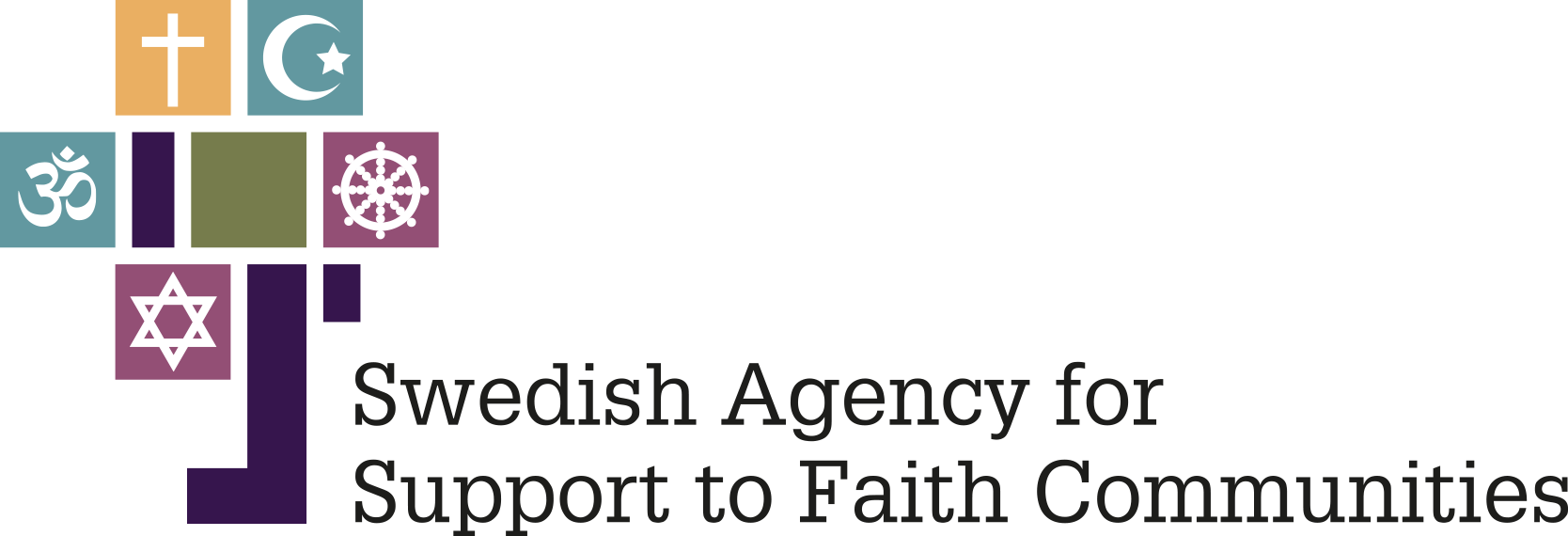BASIC INFO: FAITH COMMUNITIES IN SWEDEN
Buddhist, Hindu and Sikh communities
Organized Buddhism has its roots in the 1970s, originally mostly through Swedish converts. In later years, community life has been expanded through immigration from Thailand, Sri Lanka and Vietnam. These days, most buddhist traditions are present in the country and it is estimated that regular religious practices take place at more than a hundred sites across the country. A number of Hindu temples are, since the 1970s, performing regular religious practices in Sweden, mostly in the big city regions around Stockholm and Gothenburg. The number of larger temples today are estimated to be between 10 and 15. Sikh groupings, through several religious centers (gurdwaras), are also established in Sweden, also predominantly in the big city regions.
The Jewish minority
The Jewish minority traces its roots back to the end of the 18th century. Today, religious practices are centered around the congregations in Stockholm, Gothenburg and Malmo. The congregations cooperate through the Official Council of Swedish Jewish Communities, which works to enable Jewish life within the local areas and at the same time initiates, pursues and monitors issues on a national level on behalf of the Jewish minority in Sweden.
The Christian Churches
The Christian Churches in Sweden today consist of four main groupings: Free churches, Lutheran, Orthodox and Eastern and Roman-Catholic.
The Evangelical-Lutheran Church of Sweden – the state church up till the year 2000 – remains the largest belief organization in Sweden, being an open people’s church with congregations throughout Sweden. In addition, there are a number of smaller Lutheran minority organizations.
The Free church protestant Christian movement history dates to the 19th century, when the Christan revival movement reached Sweden, creating Baptist, Methodist and New Evangelical currents. Today some ten national belief organizations belong to this group, across local congregations in mostpopulation centers in Sweden.
The Eastern and Oriental Orthodox churches are organizations with root in eastern and southern Europe, the Middle-east and Africa. These churches were established in Sweden beginning in the 1960s and onward. Today there are some twenty different national churches presiding over more than two hundred congregations. Within this group there is on the one hand the Eastern Orthodox family of churches (such as the Greek-orthodox) and on the other hand the Oriental Orthodox churches, (like the Syrian-orthodox).
The Catholic church in Sweden celebrates their services in around 130 places in the country and there are more than 40 congregations. A special group within the church is the Oriental Catholics, divided between some twenty different rites, with roots mostly in the Middle East.
Muslim communities
The Muslim minority is today the largest non-Christian religious group in Sweden. Ever since the middle of the 20th century, the group has grown mainly through immigration. Among the most important regions of origin for people with Muslim backgrounds are south-east Europe, the Middle-east, North Africa and the Horn of Africa. Today, some ten different Islamic faith organizations exist on a national level, along with several hundred local congregations throughout Sweden. A wealth of different confessional and theological branches are represented among these (for example Shia, Sunni, Ahmadiyya and various Sufi branches).
Other religious minorities
Several religious minorities from the Middle-east have active operations in Sweden. The most obviously religious of these is likely the Mandaean group, originating in southern Iraq. In addition to the Mandaeans, Alevi, Yezidi and Druze faith communities are also represented – as is Bahai. Alongside the religious traditions listed above, there are also activities happening in a lot of locations throughout Sweden which can be termed as belonging to the new religious movements. Among these are the Church of Scientology, the Jehovah’s Witnesses and the Unification Church (Moon). In addition, many people today encounter religious practices through spiritual yoga or meditation techniques.



